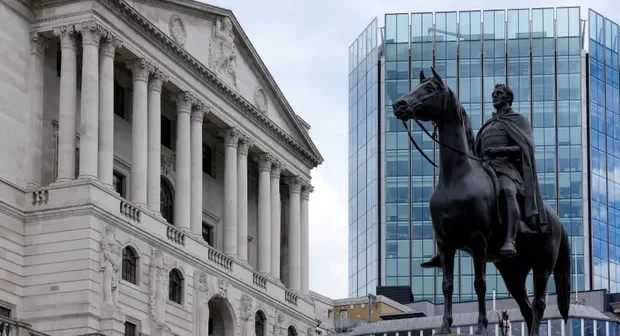The UK avoided entering a recession at the end of last year by the narrowest of margins, official figures have revealed, after economic growth flatlined in the final three months of 2022.
A decline in gross domestic product (GDP) of 0.5% in December was offset by increases in the two previous months to leave the economy performing at roughly the same level as the previous quarter.
Negative growth in the fourth quarter would have signalled recession, after the UK economy shrank by 0.2% in the third quarter – a figure revised up from the initial -0.3% estimate. A technical recession is generally defined as two consecutive quarters of negative growth.
The chancellor, Jeremy Hunt, said the figures underscored Britain’s resilience, adding that they showed the economy was the fastest growing in the G7 group of rich nations last year.
However, the economy remains 0.8% below its pre-pandemic peak in 2019, in contrast to the US, which has experienced growth of 5.1% over the same period, and the 2.4% improvement among the 19 members of the eurozone.
Business groups warned that the situation remained difficult, with one describing the drop in December as “brutal” and a harbinger of a difficult year ahead.
The shadow chancellor, Rachel Reeves, said the economy was “stuck in the slow lane” and called on Hunt to bring forward “a proper windfall tax on oil and gas giants” to prevent a 40% increase in household energy bills in April that she said would make the cost of living crisis worse.
Suren Thiru, the economics director at the Institute of Chartered Accountants in England and Wales, said: “Despite skirting a technical recession for now, December’s GDP fall confirms that the economy took a nosedive at the end of 2022.
“The UK is facing a particularly brutal year, with high inflation, stealth tax rises and the lagged impact of numerous interest rate hikes still likely to push us into a summer downturn by hammering incomes and confidence.”
Trade with the rest of the world declined during the last quarter along with retail sales, with the normally buoyant shopping period in the run-up to Christmas failing to live up to hopes, the Office for National Statistics said.
Strike action across many industries and a drop in school attendance were also blamed for the sharp drop in December.
The ONS said the quarter’s figures were rescued by a return to the office that pushed up activity in the administrative sector.
Bank of England policymakers said in their latest outlook for the UK economy that they expected GDP to grow by 0.1% in the last three months of 2022.
Ben Jones, the lead economist at the CBI business lobby group, said: “We may have avoided a technical recession late last year but we probably won’t avoid one this year. While we expect that the downturn will be shallow, if we act now, we can make the recession even shorter than predicted.
“All eyes are on the chancellor’s March budget, when businesses will be looking for a bolder approach to tackling labour and skills shortages and falling business investment. In particular, firms will be looking for a permanent replacement to the super-deduction, as well as a focus on innovation and the green economy, to help boost economic growth in the years ahead.”
Source: The Guardian

